Although considered an adult condition, depression can affect children, adolescents, and teens as well. Learning to recognize the signs of childhood depression can help you seek treatment early and help them recover.
Depression in children
Do you think your child is suffering from depression? Do they seem sad, cranky, or withdrawn? Although feeling sad and lonely is a normal part of childhood, children can often develop different forms of depression in varying degrees.
If your child has been experiencing chronic sadness for over 2 weeks and if their social functioning, education and relationships are getting affected, then seeking a medical diagnosis and treatment may be necessary. Major depression is a common psychiatric disorder observed in adults worldwide.
Although it is rare in children, some children and adolescents can develop this mood disorder which affects their thoughts, emotions and behavior.
Research shows that clinical depression in children can develop as early as age 3. Moreover, the American Academy of Child & Adolescent Psychiatry has found that around 5 percent of children and adolescents are affected by this mental illness at any given time.
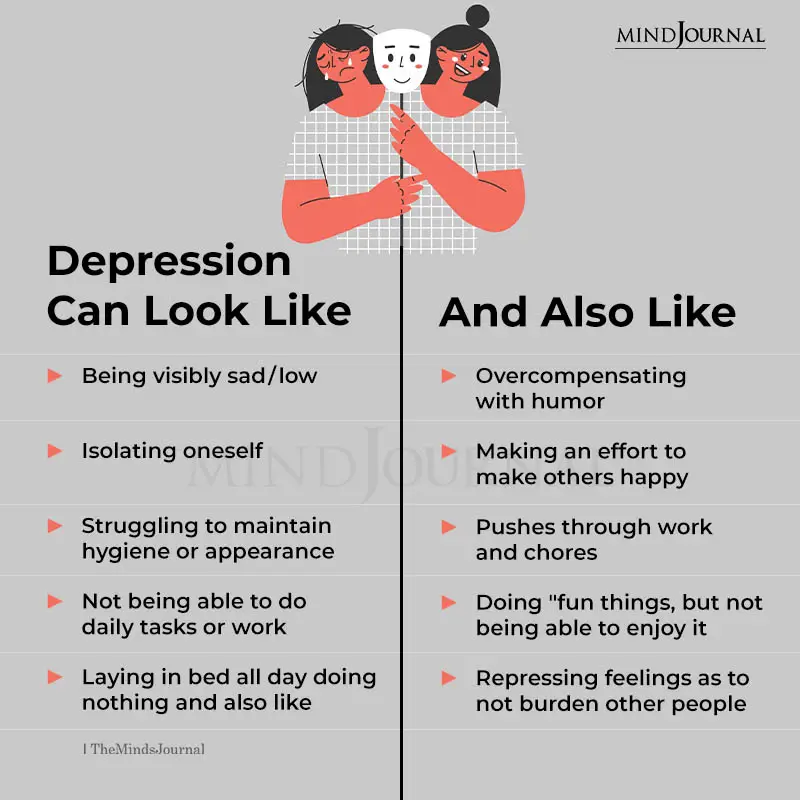
“Childhood depression is a serious and relapsing psychiatric disorder,” states a 2009 study. Depressed kids tend to be hopeless, withdrawn, lack motivation and energy, have sleep and appetite disturbances, psychomotor agitation, extreme guilt, low mood and low self-esteem. They are incapable of enjoying pleasurable activities that other children may find appealing.
When in school, such children tend to have poor academic performance due to lack of concentration. They may even appear annoyed, irritable, moody and aggressive at times. They may feel worthless, lonely, unloved and unwanted.
Unfortunately, such depressed feelings can make children suicidal and preoccupied with thoughts of death. Studies show that suicide is the third most common cause of death among sufferers and childhood depression “is a major risk factor for suicide.”
The sad truth is even kids can engage in dangerous and reckless activities that can harm them. This is why parents must take the warning signs seriously and consult a medical professional immediately. “Youth depression is associated with a range of adverse outcomes including social and educational impairments as well as both physical and mental health problems later in life,” explains a 2013 study.
Read also: 7 Things Every Parent Must Know About Childhood Depression
Can children be depressed?
Depression not only affects adults but people of all ages, including children. But as children are unable to understand their own emotions and parents usually fail to notice the symptoms in their kids, childhood depression typically goes unnoticed and untreated.
A 2018 study explains that major depressive disorder (MDD) is among the most widely prevalent mental illnesses among children and adolescents. However, as the symptoms in children may vary from the diagnosis criteria in adults, “it is often unrecognized and untreated.” Depression is not just about feeling sad, it is a debilitating mood disorder that can become life-threatening.
Although the condition can be genetic and tends to run in families, most children develop the conditions due to certain adverse early life experiences. Negative experiences such as abuse, neglect, trauma, bullying, loss of a loved ones, school difficulties or some other factors such as physical illness, comorbid conditions or personality disorders can cause childhood depression. Apart from these, brain chemistry and imbalances in neurotransmitters (dopamine, norepinephrine, and serotonin) & hormones may also play a crucial role.
Researchers claim that childhood depression is “an important public health issue,” and that it deserves special attention due to its adverse and lasting impact on child development, including physiological alterations and cognitive & social impairments.
Early intervention and management can help significantly in preventing it from becoming a lifelong problem. “Both psychotherapy and pharmacotherapy have been found to be beneficial for the acute treatment of children and adolescents with depressive disorders,” states a 2000 study.
Read also: How Parents Cause Mental Health Problems In Their Children
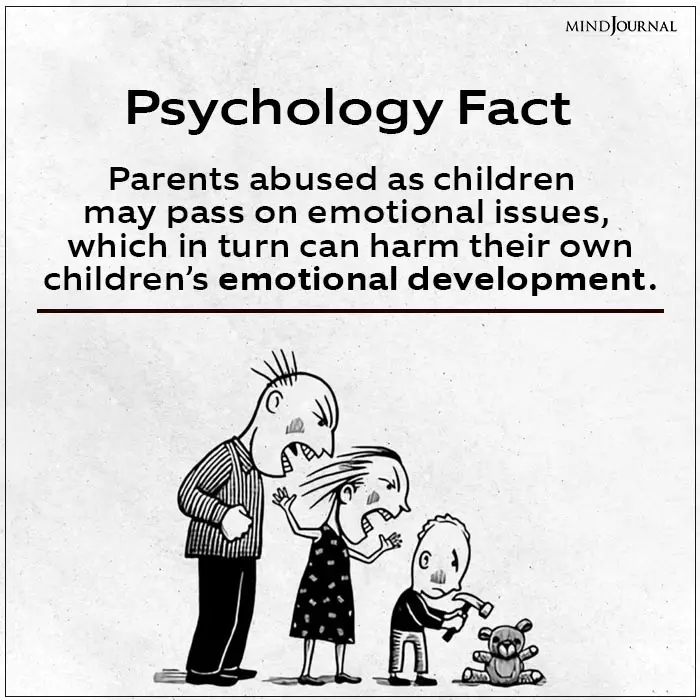
Identifying depression in children
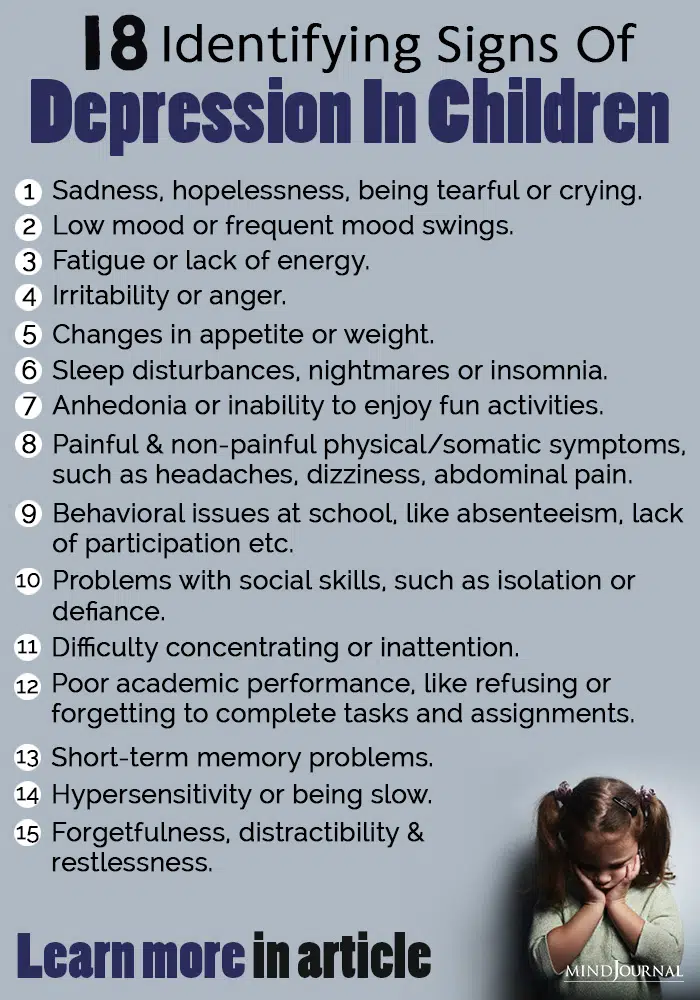
As pediatric depression manifests very differently than in adults, it can often be difficult to recognize the signs and symptoms of this mood disorder in children.
Studies have observed that depression is not necessarily the primary symptom in children as they may not even appear depressed, sad or have a low mood. This is why learning to identify the most common warning signs of this psychiatric illness in children is essential for parents. Here are a few common signs of childhood depression that you need to be aware of –
A. Depressive symptoms in children
1. Sadness, hopelessness, being tearful or crying
2. Low mood or frequent mood swings
3. Fatigue or lack of energy
4. Irritability or anger
5. Changes in appetite or weight
6. Sleep disturbances, nightmares or insomnia
7. Anhedonia or inability to enjoy fun activities
8. Painful & non-painful physical/somatic symptoms, such as headaches, dizziness, abdominal pain
9. Behavioral issues at school, like absenteeism, lack of participation etc
10. Problems with social skills, such as isolation or defiance
11. Difficulty concentrating or inattention
12. Poor academic performance, like refusing or forgetting to complete tasks and assignments
13. Short-term memory problems
14. Hypersensitivity or being slow
15. Forgetfulness, distractibility & restlessness
16. Separation anxiety when removed from parents
17. Excessive guilt and shame
18. Suicidal thoughts and tendencies
B. Depressive symptoms in adolescents and teens
1. Hopelessness, sadness or irritable mood or being cranky & angry
2. Low self-esteem and poor sense of self-worth
3. Feelings of worthlessness
4. Self-criticism, guilt & negative self-talk
5. Irritability, hostility, belligerent, non-compliance or defying authority figures
6. Unusual behavior or acting out of character, like trying to run away from home
7. Difficulty with social interactions or poor communication
8. Changes in eating and sleeping habits
9. Pessimism and negative outlook towards life
10. Constantly changing friends or issues with peers
11. Avoidance of activities enjoyed previously
12. Relationship issues, social isolation and withdrawal, like avoidance of family members and loved ones
13. Persistent boredom or sulking
14. Poor performance in school
15. Highly sensitivity to failure or rejection
16. Physical illnesses like unexplained aches, fatigue or exhaustion
17. Impulsive and reckless behavior, such as substance use, risky sexual behavior, theft, destruction of property, violations of rules etc
18. Self-harm or suicidal thoughts
Apart from these, some other common signs of depression in children, adolescents and teens may include the following –
– Emptiness, numbness or inability to express emotions
– Lack of confidence
– Low motivation
– Self-injury or self-destructive behavior, such as cutting
– Psychomotor retardation
– Giving away possessions
– Increasing interest in death
– Repeated arguments with siblings & friends
– Vocal outbursts
– Loss of interest in hobbies or extracurricular activities
– Being highly dependent or overly clingy in relationships with caregivers
– High levels of stress and anxiety
– Inability to function normally in daily life
– Separation issues
– Being short-tempered
– Feeling misunderstood
– Difficulty making decisions
– Obsession with past failures leading to self-blame
– Lack of focus on appearance or personal hygiene
– Heightened sensitivity to criticism
– Regression or acting younger than their age
Read also: 4 Common Symptoms Of Depression In Children
Although some of these signs may be observed in children who are not depressed, if you can identify most of these signs or a combination of these symptoms in your child consistently for a period of at least two weeks, then it may indicate the onset of childhood depression.
However, as a depressed child may not necessarily appear sad, parents, caregivers and teachers may misidentify their symptoms as bad behavior.
However, talking to them in a caring manner can encourage the child to express their true feelings of sadness. You should also understand that the symptoms may vary greatly from one child to another as every sufferer experiences the mood disorder differently.
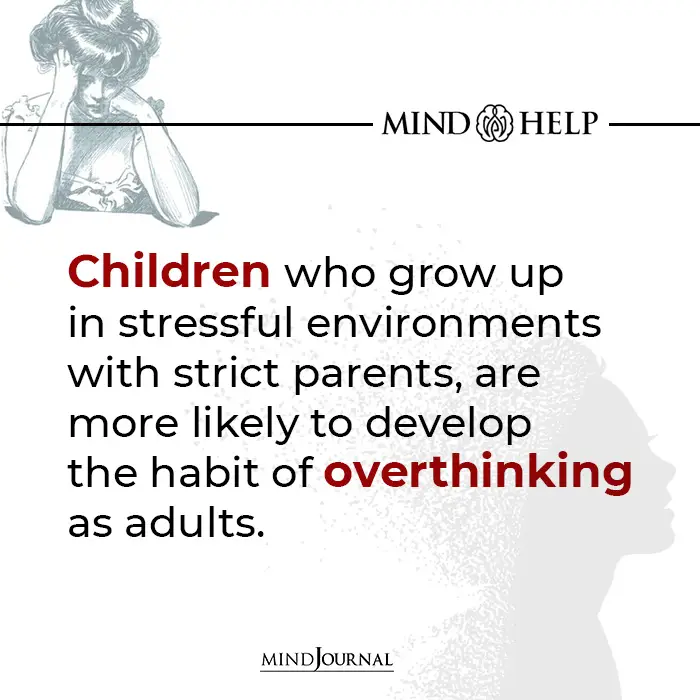
Is your child suicidal?
Suicide is a real and serious risk of depression and a public health problem in the pediatric population. Unfortunately, realizing that your child may be suicidal can be the worst nightmare for any parent.
According to a 2010 study, several parents fail to notice the red flags of depressive disorders in their children even when the signs are obvious. The study adds “These parents may not realize the magnitude of depression until their child’s adaptive behavior at home and school has seriously deteriorated, until the child has expressed his desire in the form of suicidal or other self destructive behaviors, or until the child has fallen victim of a devastating drug abuse problem.”
Further research shows that depression and dysthymia (persistent depressive disorder) are among the primary reasons for suicide in elementary school-aged children. Children who commit suicide usually tend to be male, die through hanging, suffocation or strangulation in their own homes. Moreover, relationship issues with family members, loved ones and friends tends to be the most common trigger.
Another 2013 study also found that unhealthy relationships with caregivers or parents and family discord are closely related to “an increased suicide risk in depressed adolescents.”
Although committing suicide is less common among young individuals, depressed children can think about and attempt suicide. If you can notice the following red flags in your child, then talk to them and seek medical help immediately –
– Increased interest in topics related to death
– Talking about death & dying frequently
– Giving away their prized possessions
– Reckless or risk-taking behavior
– Engaging in self-injury or self-destructive behavior
– Social withdrawal and isolation
– Talking about being unhappy, not wanting to live or suicide
Read also: Why Would A Young Child Contemplate Suicide?
What you can do
If the symptoms are mild, then certain lifestyle changes can help substantially to deal with the mental condition. However, if the disorder is severe, then seeing a doctor may be necessary. Regardless, there are certain and healthy proactive steps that you can take to help your child cope with and overcome childhood depression. Some of the most beneficial coping strategies are mentioned below –
1. Consult a doctor
If you are worried about your child being depressed, then the first and most important thing you should do is consult a medical professional. Talk to your pediatrician or a primary care physician, suggests author Dr. Perri Klass.
Your doctor may recommend a mental health professional like a psychiatrist, psychologist or therapist for an accurate diagnosis and treatment. According to a 2012 study, a combination of psychotherapy and medications can prove beneficial for the child.
Therapy approaches like cognitive behavioral therapy and interpersonal therapy are highly recommended, while antidepressants may also be prescribed. However, it should be noted that certain antidepressants can increase the risk of suicide. “Treatment must take into account the severity of depression, suicidality, developmental stage, and environmental and social factors,” adds the study.
2. Talk with your child
Speak openly with your child and talk to them about their thoughts, emotions and experiences at school & at home or about bullying.
You should also encourage them to express their feelings. Provide them reassurance that it’s okay to feel sad and depressed and there is no reason to feel guilt or shame. Encourage them to open up instead of suppressing or hiding their emotions. Focus on building open communication and ask questions frequently in a kind, supportive and caring way.
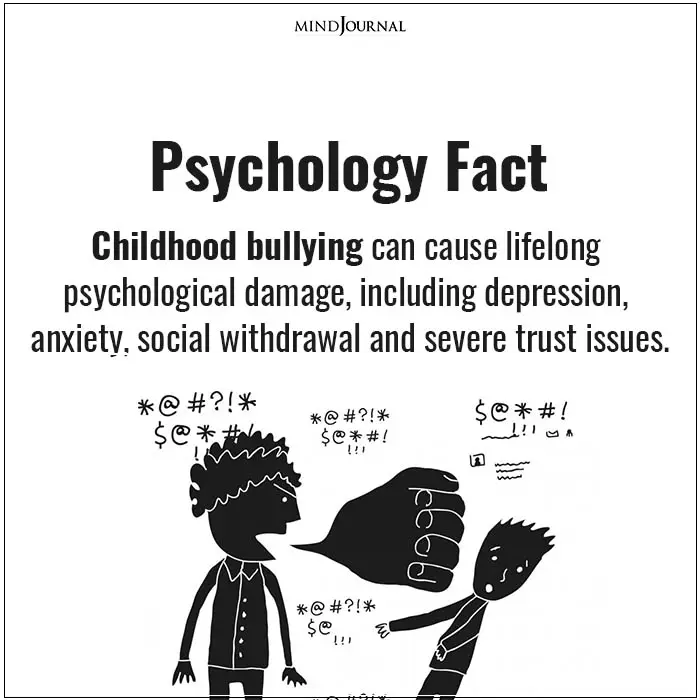
3. Encourage them to seek help
Let your child know that they are not alone and that there is nothing wrong with them. Acknowledge and validate their thoughts and emotions and be supportive.
Let them know that you are always there to help them and they simply need to reach out. You can also talk to other caregivers like family members, siblings, teachers, coaches or counselors and tell your child to ask them for help, if they need to.
Read also: The Antidote for Teen Depression
4. Seek support
Helping a child overcome depression can be challenging at times. That’s why you need to talk to your loved ones and ask them for support and be involved in the child’s treatment and recovery.
You can talk to your spouse or partner, family members, relatives, friends, teachers, coaches or any other individual who interact with your child frequently. Ask them to keep an eye on your child’s behavior, help the child when they need it and let you know about any unusual behavior.
5. Teach emotion regulation
Help your child learn healthy strategies for managing their thoughts and emotions, problem solving skills and ways to deal with failure in a positive manner. It can also help to talk to them about the importance of physical and mental health.
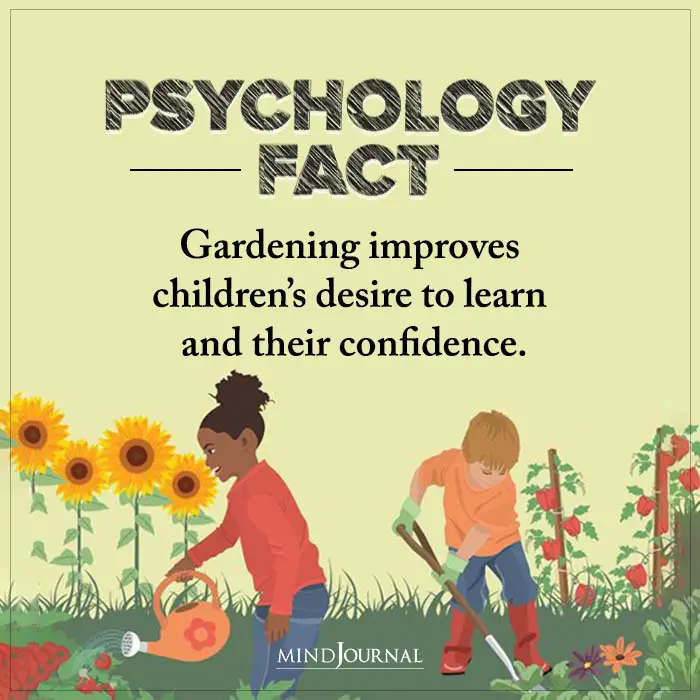
Here are some other coping strategies that can be helpful –
– Educate yourself and other family members about childhood depression
– Follow a healthy lifestyle and make sure they get enough sleep, follow a nutritious diet and engage in physical activity or exercise regularly
– Restrict the use of technology & screen time and keep them away from social media
– Encourage them to be more social and spend enough time with family and friends to avoid isolation
– Ask them to do some chores or run errands as giving them responsibilities can help build self-esteem and sense of purpose. Reward them for successful completion of tasks.
– Avoid minimizing their feelings or telling them how the child should feel instead. Listen to them and provide support.
– Create a positive, loving, fun and supportive environment in your home by minimizing conflict with other family members
– Be mindful of how you behave around them or react to them on a daily basis
– Teach them relaxation and mindfulness techniques
– Encourage them to attend doctor’s appointments, therapy sessions and take medications as instructed by the doctor
– Spend quality time with your depressed child and involve other family members in fun activities
– Practice positive reinforcement and praise good behavior
– Create a list of important numbers to call in case of an emergency
– Keep sharp or potentially dangerous household objects like knives, scissors, ropes, alcohol, sleeping pills or other medicines away from the child’s reach
Read also: 6 Tips To Reduce Self-Harm In Children
Childhood depression is devastating, but treatable
Depression in children can adversely affect a child’s development and impair their ability to function properly even in adulthood, when left untreated. This is why it is crucial that parents learn to identify the red flags and warning signs of depressive disorders in their children as early medical treatment can help the child recover before symptoms get worse.
Moreover, it is also important that you take certain proactive steps to cope with your child’s condition and support them in a non-judgmental way.
As children are often unable to communicate their thoughts and feelings, as a parent you need to encourage them to speak up and ask for help, when they need it. With effective treatment and support children can recover from this mental illness and live a healthier life.
Read also: 12 Ways To Protect Your Child From Stress
Frequently Asked Questions (FAQs)
What is the worst thing that can happen to a kid with depression?
Some of the things that can happen to a kid with depression are bad performance or productivity at school, they may become socially isolated, and may experience difficulty maintaining interpersonal relationships with family and friends
Is saying your depressed the same thing as you saying your sad?
Sadness is an emotion that people universally experience, whereas depression is a mental health condition that impacts an individual’s life.
How can a person find inspiration again after depression?
Having depression can make a person aloof and withdrawn from their surroundings. Finding a hobby or passion, seeking therapy and focusing on self-development can be helpful to combat this condition.
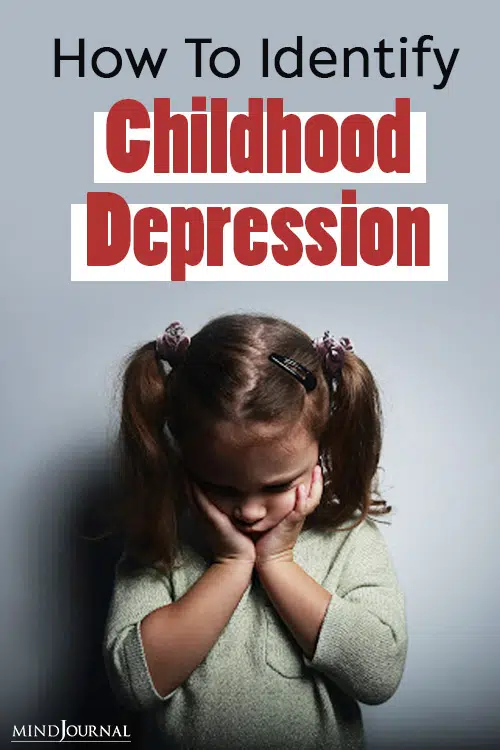
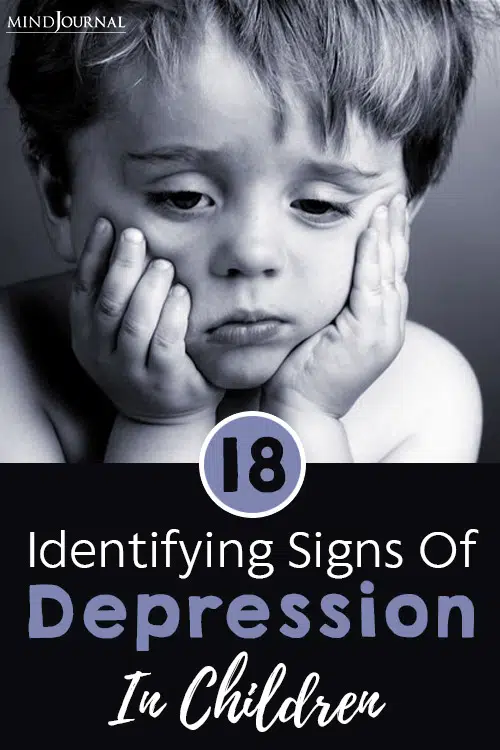
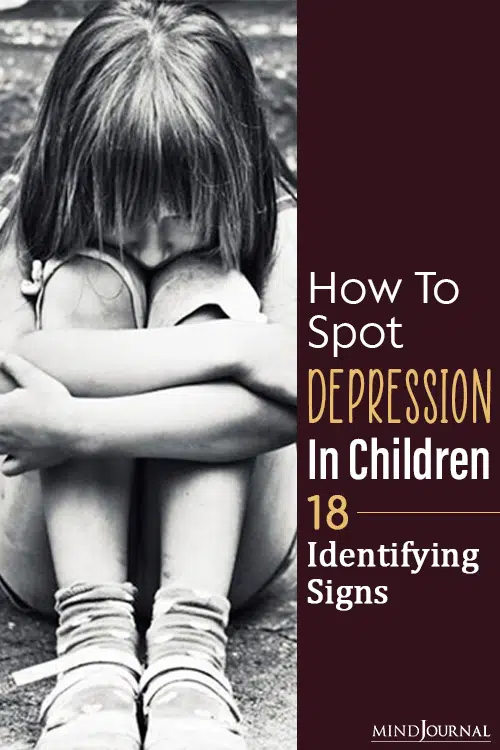
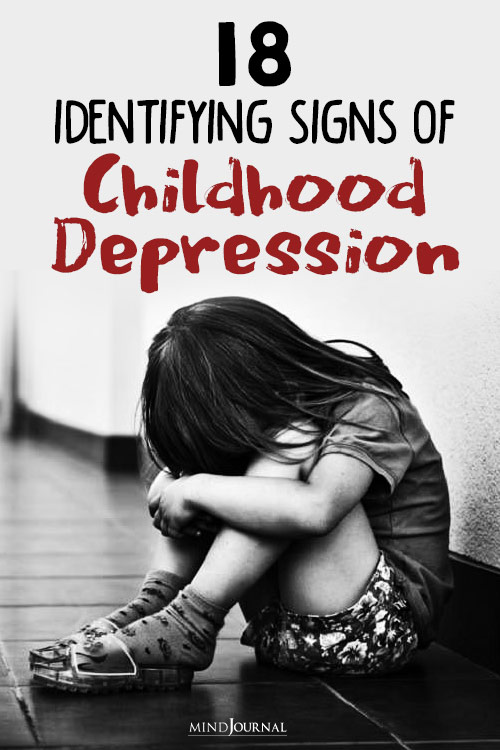
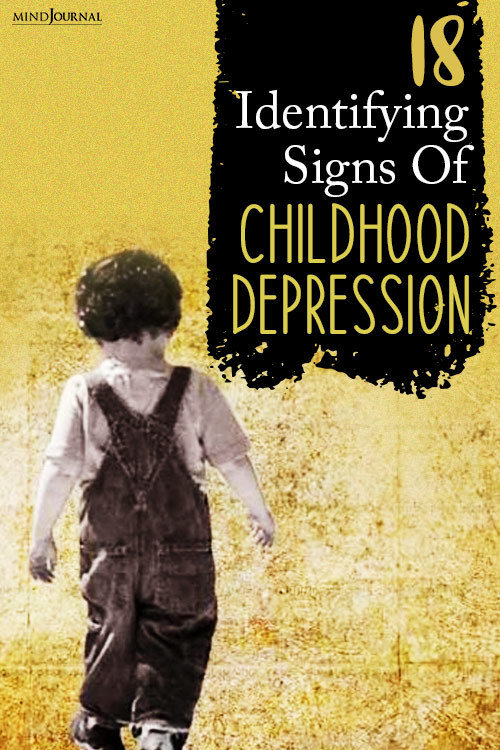
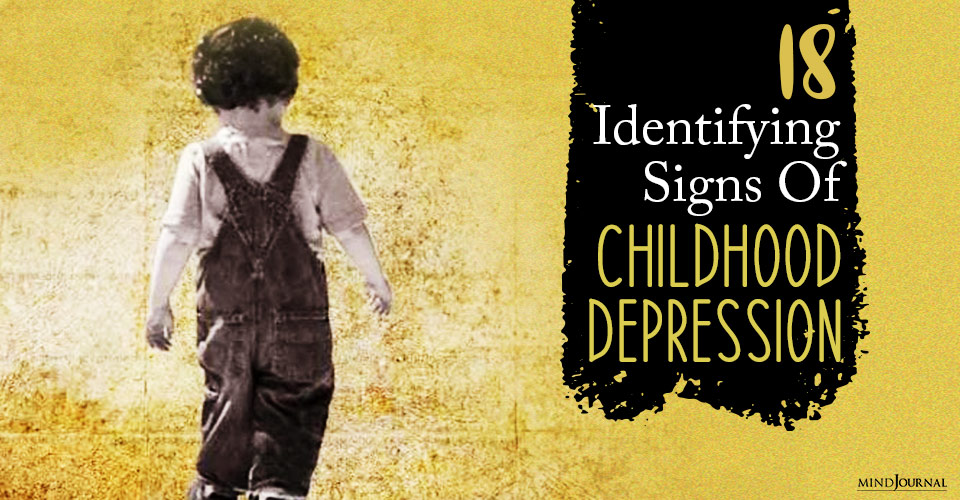





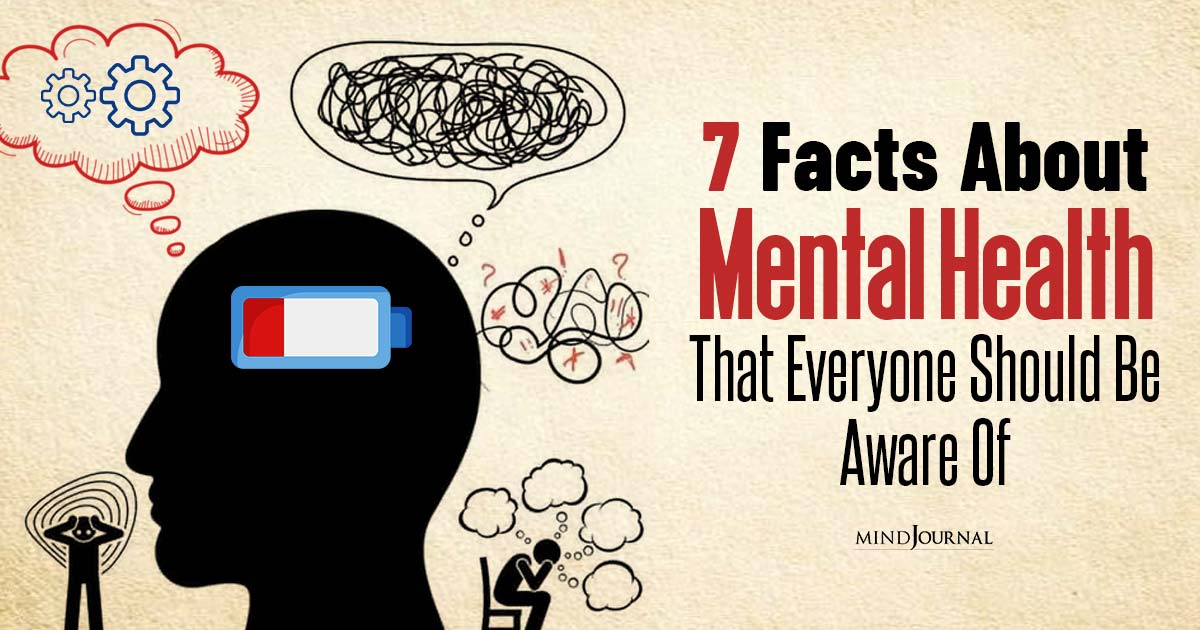

Leave a Reply
You must be logged in to post a comment.